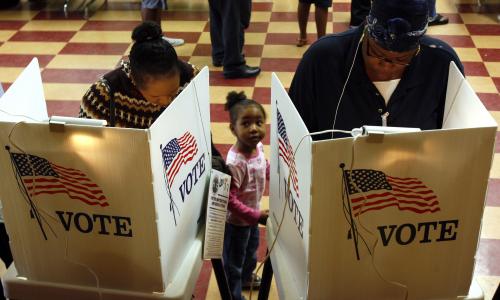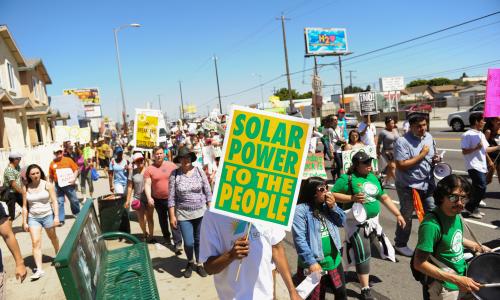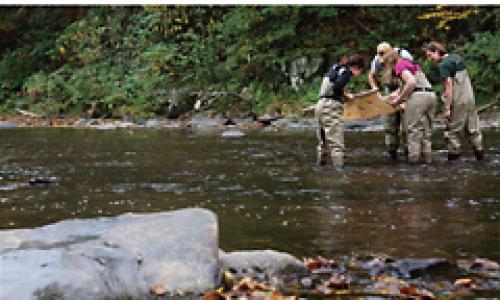Table of Contents
As important as it is to fight for science-based solutions, we can’t create and defend these solutions unless our democracy is working for all of us. That’s why we’re working to make our elections fairer and more inclusive and to help ensure that all voices are heard. By developing and advocating for commonsense reforms to strengthen our democracy, we can make science-based solutions more achievable and less likely to be stymied by powerful interests.
We envision a participatory democracy in which all of us have a voice to create a better future. In which communities facing threats to their health and safety can use the democratic process to address those threats.
But recent changes are too often weakening our democracy. People in underserved communities across the United States are actively being disenfranchised through laws and policies that make it harder to vote and to allow their voices to be equitably heard.
New voting restrictions, gerrymandered districts, threats to voters and election officials, and even violent attempts to overturn election results have placed our democracy in grave danger.
The Center for Science and Democracy connects the dots, promoting reforms that strengthen our democracy and make science-based policymaking more possible.
Bringing a science perspective to democracy reform
Just as science is needed to help develop policies that are effective, a healthy democracy is needed to ensure that they are fair. When some voices are excluded from the process, it becomes easier to make decisions that serve narrow interests rather than the public good. At the Center for Science and Democracy, we work for reforms to our democracy that can make our elections fairer and more inclusive and can help ensure that all voices are heard.
The science of elections
As part of our work to strengthen our democracy, we’ve convened an Election Science Task Force of leading election experts from around the country, including current and former election officials, social scientists, lawyers and voting rights activists. We’re bringing the tools of science to the process of holding elections, developing science-based recommendations to make voting district maps fairer, election data more transparent and accessible, and to design ballots that are simpler and more accessible for voters. By pushing for these changes, we’re working toward freer and fairer elections.






